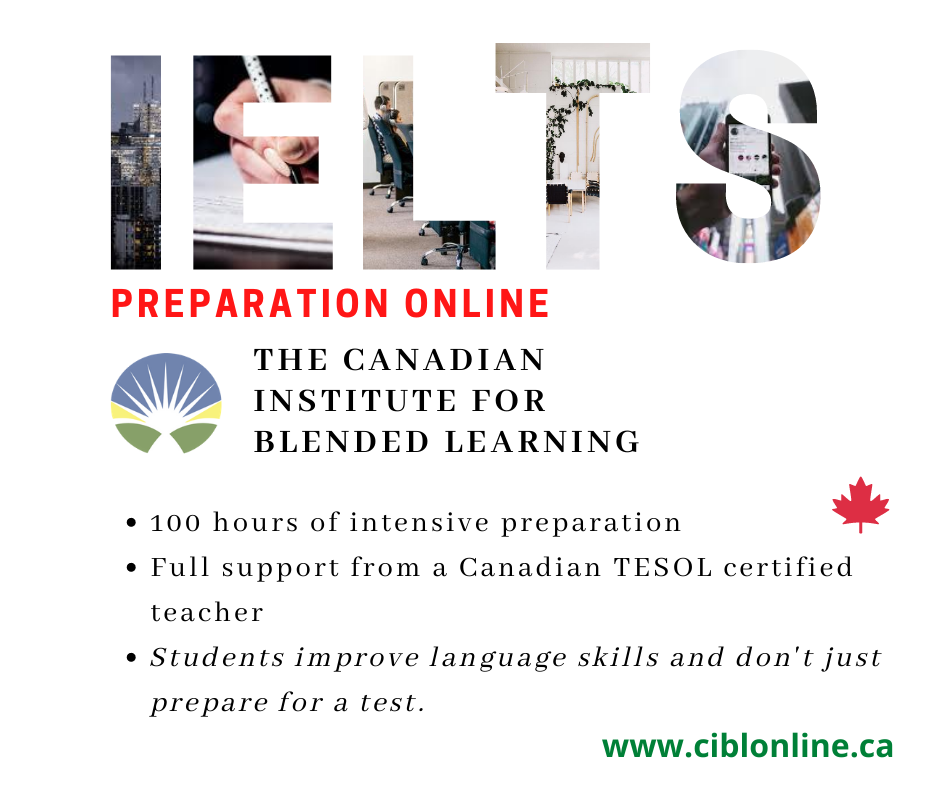Atlantic Immigration (Pilot Program)
-
Atlantic High-Skilled Program (AHSP)
Through this program, eligible foreign workers with a job offer from an employer in Atlantic Canada can submit an application for Canadian permanent residence.
Immigration, Refugees and Citizenship (IRCC) aims to process 80 percent of applications within six months.
- Nova Scotia
- New Brunswick
- Prince Edward Island
- Newfoundland
- (Together, Atlantic Canada)
- Job offer
- Work Experience
- Education
- Language ability CLB 4 or higher
- Proof of funds
- Not aligned with Express Entry.
- No points system.
- First-come, first-served.
- Applicants may obtain a work permit before permanent residence.
The AHSP is an employer-driven program, and therefore all applicants are required to obtain a valid job offer.
Applicants to the AHSP must demonstrate that they have a job offer that is:
- from a designated employer in one of the four Atlantic provinces;
- for full-time employment for at least one year;
- non-seasonal;
- skilled (i.e. in a managerial, professional, or technical/trades position at skill type 0, A or, B of the National Occupational Classification [NOC]); and
- supported by a provincial certificate of endorsement from the province that indicates that the job offer is genuine and that a needs assessment has been completed and a settlement plan is in place for the applicant and each member of the family.
Employers in the Atlantic region can review designation requirements on our AIPP Employer Designation page.
Applicants to the AHSP must demonstrate that they have obtained work experience for at least one year (1,560 hours total/30 hours per week), non-continuous, full-time or an equal amount in part-time, within the last three years. This work experience must be:
- paid work (i.e. volunteer work, unpaid internships do not count); and
- in a managerial, professional, or technical/trades position (NOC 0, A, or B).
Additional notes on work experience:
- Applicants must have carried out the activities listed in the lead statement of the National Occupational Classification (NOC) description and a substantial number of the main duties.
- Canadian experience must have been obtained while the foreign national was authorized to work in Canada as a temporary resident.
- Applicants do not have to be employed at the time they apply.
- Periods of self-employment will not be included when calculating the period of qualifying work experience.
- Work experience acquired during a period of study is allowed, as long as the work hours did not exceed what the applicant was authorized to do for that period.
Applicants to AHSP must demonstrate they have one of the following:
- a Canadian secondary (high school) or post-secondary certificate, diploma or degree; or
- a completed foreign educational credential.
For applicants with an education completed outside Canada, an Educational Credential Assessment (ECA) is required in order to prove that the level of education is commensurate with Canadian standards. The ECA must be less than five years old the time the application is submitted.
Applicants to the AHSP must prove language ability of at least fluent basic level in either English or French in order to apply to the program. This is equivalent to Canadian Language Benchmark (CLB) 4. To find out how this corresponds with the standardized language tests recognized by IRCC for this program, use the Canada Immigration Language Converter.
The following language tests are approved for the AHSP:
- IELTS (International English Language Testing System) — General test only.
- CELPIP (Canadian English Language Proficiency Index Program) — General test only.
- TEF (Test d’évaluation de français).
Potential applicants may note that the language threshold for this program is lower than for many other Canadian economic immigration programs, including the programs managed under the Express Entry system. Moreover, because there is no points system for the AHSP, once a potential applicant has proven the required language ability, there is no additional incentive — with respect to applying to the AHSP, at least — in re-taking a language test.
Language test results must be less than two years old at the time the application is submitted.
The required settlement funds must be equal to or greater than the sums listed below for each family size.
Number of family members (including those supported by the applicant, even if they are not included on the application) Funds required 1 $3,075 2 $3,828 3 $4,706 4 $5,714 5 $6,481 6 $7,309 7 or more $8,138 Applicants must show that they have enough money to support themselves and their family member, if applicable, after landing in Canada unless they are working in Canada under a valid work permit.
These funds cannot be borrowed from another person.
Applicants must be endorsed by an Atlantic province in order for the application to be complete and accepted by IRCC.
An endorsement letter is issued by the province to persons who have been endorsed. Applicants should submit a copy of this letter with their application for permanent residence submitted to IRCC.
All endorsements are valid for six months after the date of issuance, and extensions are not permitted under these programs. The application for permanent residence must be submitted before the expiry date of the endorsement letter.

Complete this form, and submit to our professional staff, you will be contacted within 2 business days by our company with a solution Apply today!
-
Atlantic Intermediate-Skilled Program (AISP)
Through the AISP, eligible foreign workers with a job offer from an employer in Atlantic Canada can submit an application for Canadian permanent residence.
Immigration, Refugees and Citizenship (IRCC) aims to process 80 percent of applications within six months.
- Nova Scotia
- New Brunswick
- Prince Edward Island
- Newfoundland
- (Together, Atlantic Canada)
- Job offer
- Work Experience
- Education
- Language ability CLB 4 or higher
- Proof of funds
- Not aligned with Express Entry.
- No points system.
- First-come, first-served.
- Applicants may obtain a work permit before permanent residence.
The AISP is an employer-driven program, and therefore all applicants are required to obtain a valid job offer.
Applicants to the AISP must demonstrate that they have a job offer that is:
- from a designated employer in one of the four Atlantic provinces;
- for full-time, indeterminate employment;
- non-seasonal;
- skilled or intermediate level (i.e. in a managerial, professional, technical/trades, or intermediate position at skill type 0, A, B, or C of the National Occupational Classification [NOC]); and
- supported by a provincial certificate of endorsement from the province that indicates that the job offer is genuine and that a needs assessment has been completed and a settlement plan is in place for the applicant and each member of the family..
Applicants to the AISP must demonstrate that they have obtained work experience for at least one year (1,560 hours total/30 hours per week) within the last three years. This work experience may be non-continuous, full-time or part-time, but must add up to a total of 1,560 hours. This work experience must be:
- in one occupation (work with different employers is permitted);
- paid work (i.e. volunteer work, unpaid internships do not count); and
- in a NOC C level occupation.
Additional notes on work experience:
- Applicants must have carried out the activities listed in the lead statement of the National Occupational Classification (NOC) description and a substantial number of the main duties.
- Canadian experience must have been obtained while the foreign national was authorized to work in Canada as a temporary resident.
- Applicants do not have to be employed at the time they apply.
- Periods of self-employment will not be included when calculating the period of qualifying work experience.
- Work experience acquired during a period of study is allowed, as long as the work hours did not exceed what the applicant was authorized to do for that period.
Applicants to AISP must demonstrate they have one of the following:
- a Canadian secondary (high school) or post-secondary certificate, diploma or degree; or
- a completed foreign educational credential.
For applicants with an education completed outside Canada, an Educational Credential Assessment (ECA) is required in order to prove that the level of education is commensurate with Canadian standards. The ECA must be less than five years old the time the application is submitted.
Applicants to the AISP must prove language ability of at least fluent basic level in either English or French in order to apply to the program. This is equivalent to Canadian Language Benchmark (CLB) 4. To find out how this corresponds with the standardized language tests recognized by IRCC for this program, use the Canada Immigration Language Converter.
The following language tests are approved for the AISP:
- IELTS (International English Language Testing System) — General test only.
- CELPIP (Canadian English Language Proficiency Index Program) — General test only.
- TEF (Test d’évaluation de français).
Potential applicants may note that the language threshold for this program is lower than for many other Canadian economic immigration programs, including the programs managed under the Express Entry system. Moreover, because there is no points system for the AISP, once a potential applicant has proven the required language ability, there is no additional incentive — with respect to applying to the AISP, at least — in re-taking a language test.
Language test results must be less than two years old at the time the application is submitted.
The required settlement funds must be equal to or greater than the sums listed below for each family size.
Number of family members (including those supported by the applicant, even if they are not included on the application) Funds required 1 $3,075 2 $3,828 3 $4,706 4 $5,714 5 $6,481 6 $7,309 7 or more $8,138 Applicants must show that they have enough money to support themselves and their family member, if applicable, after landing in Canada unless they are working in Canada under a valid work permit.
These funds cannot be borrowed from another person.

Complete this form, and submit to our professional staff, you will be contacted within 2 business days by our company with a solution Apply today!
-
Atlantic International Graduate Program (AIGP)
This program allows graduates to submit an application for permanent residence without first having to obtain work experience.
The AIGP is part of the Atlantic Immigration Pilot Program (AIPP), a new Canadian immigration venture for 2017 and beyond.
Through the AIGP, eligible foreign workers with a job offer from an employer in Atlantic Canada can submit an application for Canadian permanent residence.
Immigration, Refugees and Citizenship (IRCC) aims to process 80 percent of applications within six months.

Complete this form, and submit to our professional staff, you will be contacted within 2 business days by our company with a solution Apply today!
-
EMPLOYERS ELIGIBILITY & PROCESS
Employers in Atlantic Canada who wish to hire foreign talent through the Atlantic Immigration Pilot Program (AIPP) must first receive employer designation.
The AIPP is an immigration pilot program, introduced in 2017 for a three-year period. It allows eligible skilled workers, intermediate level workers, and international graduates to become permanent residents of Canada and immigrate to one of the Atlantic provinces, namely Nova Scotia, New Brunswick, Prince Edward Island, and Newfoundland and Labrador.
All programs under the AIPP are employer-driven, meaning that applicants require a job offer in order to satisfy the criteria. As such, local employers play a big role in the process.
There is no Labour Market Impact Assessment process under the AIPP. However, employers must still follow a few steps in order to hire through this program.
Under the AIPP, employers also work with settlement service provider organizations in their province. This will help newcomers settle and integrate in Canada.
The employer designation process and settlement service provider organizations are different for each province:
In all cases, the employer must send the job offer, the settlement plan for each adult family member, and an endorsement application to the province for review. If the province approves the application, they will send the applicant/candidate an endorsement letter. This letter must be included with the immigration application.
Employers in Nova Scotia looking to fill persistent labour gaps through the AIPP must first be approved for eligibility by being designated and then endorsed by the province.
To become designated, an employer must:
- Have a business operating in good standing;
- Provide information on labour needs; and
- Commit to working with a service provider organization on settlement and retention
To become endorsed, an employer must:
- Demonstrate efforts to hire locally have not been successful;
- Recruit a foreign worker;
- Provide a valid, full-time, non-seasonal job offer co-signed with the foreign worker; and
- Provide an individualized settlement plan co-signed with the foreign worker.
Employers must also work with a settlement service provider in the province. See below for a list of currently available providers.
Employers in New Brunswick interested in participating in the AIPP must meet the following designation criteria:
- The employer wants to hire full-time, non-seasonal international candidates;
- The employer and their business are well-established and in good standing; and
- The employer is committed to meet the settlement needs of international candidate(s) and accompanying family members.
Employers in PEI interested in participating in the AIPP must meet the following designation criteria.
The employer must:
- Want to hire full-time, non-seasonal international candidates;
- Be in good standing with provincial and federal standards and legislation;
- Demonstrate preparedness to receive and meet the settlement needs of international candidate(s) and accompanying family members, and agree to do so; and
- Understand and agree to the reporting requirements for the program.
The Employer Designation Application Form must be completed before you can apply for endorsement of a foreign national under the Atlantic Immigration Pilot. Designated employers are eligible to apply for endorsement of a foreign national they wish to hire.
Designation is the first step for employers in Newfoundland and Labrador interested in participating in the AIPP. The designation process is designed to confirm that:
- The AIPP is the immigration program best suited to address the employer’s needs;
- The employer wants to hire full-time, non-seasonal international candidates;
- The employer and their business is established and in good standing as per the program guidelines;
- The employer has demonstrated their preparedness to receive and meet the settlement needs of international candidate(s) and accompanying family members, and has agreed to do so; and,
- The employer understands and agrees to the reporting requirements for the program

Complete this form, and submit to our professional staff, you will be contacted within 2 business days by our company with a solution Apply today!






